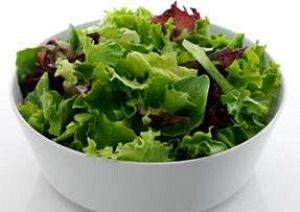Spinach has traditionally been regarded as a healthy, green leafy vegetable and a valuable source of vitamins and minerals, in particular iron. The tedious chore of cleaning the tender greens and removing soil and sand traces has been taken care of by packinghouses. As a result, the consumer could purchase ready to eat spinach in plastic bags. These greens were a welcome ingredient for spinach salads or other dishes.
Lately all spinach has been recalled from the world’s largest producer of organic produce. Natural Selection Food has recalled a total of 34 brands that were distributed nationwide, and some of which were available also in Canada. Consumers are still being warned not to eat fresh spinach from the U.S., even though there have been no reported cases of ill effects or diseases in Canada itself. Problems have surfaced in September in form of food borne illness in the U.S. The culprit seems to be contamination with E. coli 0157:H7. Food borne illness can be serious. So far there have been 109 cases of illness in the U.S. and possibly two deaths. The worst affected area so far is Wisconsin, where 29 illnesses were reported and one person died of the disease.
As a result of this alert, salad mixes that contained a variety of greens including spinach leaves have also been pulled from the shelf. It should be mentioned that washing the spinach leaves does not make it safe to consume, as the E.coli bacteria stick to the leaves.
While it seems good-bye to spinach leaves for now, it remains important to eat your greens. Researchers at University of California in Los Angeles and colleagues at Louisiana State University analyzed the salad consumption based on the intake of salad, raw vegetables and salad dressing on 9,406 women and 8,282 men. The researchers also found from their studies that daily consumption of salad and raw vegetables is not the norm in any population group and even less prevalent among African Americans.
There were data from lab tests on serum nutrient levels, and it showed that consumption of salads was positively associated with above-median serum micronutrient levels of folic acid, vitamin C and E, lycopene, and alpha carotene and beta carotene. All of these nutrients are important for healthy daily functioning. They are weapons that help fight infection, heart disease and cancers. The consumption of salad and raw vegetables remains the most effective strategy for increasing the intake of important nutrients.
Reference: The Medical Post, October 3, 2006, page 21
Here is a follow-up on this story: Apparently the outbreak was caused by a wild boar and by a nearby cattle field: http://www.foodsafetynews.com/2009/09/meaningful-outbreak-7-dole-spinach-e-coli-outbreak/#.VFaWXPTF-88
More information about food safety: http://nethealthbook.com/health-nutrition-and-fitness/nutrition/food-safety/
Last edited November 2, 2014






